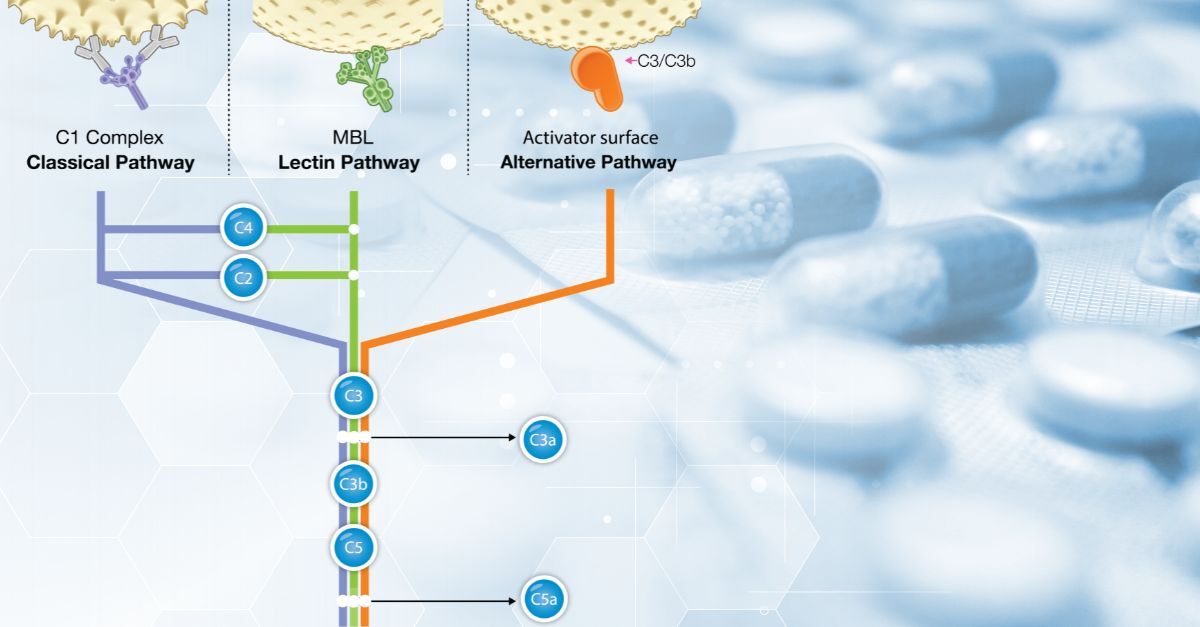- Other Products
- CCP
The complement system is a vital part of the immune response, consisting of over 30 proteins that work together to combat infections, drive inflammation, and clear damaged cells.
Biomarkers such as C4d and TCC provide valuable insights into complement activation, making them useful tools for monitoring immune activity in cancer and infectious diseases.


The complement system is a vital part of the immune response, consisting of over 30 proteins that work together to combat infections, drive inflammation, and clear damaged cells.
Biomarkers such as C4d and TCC provide valuable insights into complement activation, making them useful tools for monitoring immune activity in cancer and infectious diseases.
Complement biomarkers, especially C4d, are gaining attention for their role in cancer prognosis. Elevated C4d levels in blood or tumor tissue are linked to worse outcomes in cancers like renal and lung cancer. In contrast, normal levels often correlate with stable disease. These findings highlight the potential of C4d as a reliable indicator for tracking disease progression and guiding clinical decisions.
In infectious diseases, overactivation of the complement system can lead to harmful inflammation and tissue damage. Biomarkers like C4d and TCC help detect this overactivity, offering clues about disease severity and progression. They are also valuable in evaluating the effectiveness of complement-targeting treatments aimed at restoring immune balance and improving outcomes.
Accurate detection of complement biomarkers depends on high-quality immunoassays. Platforms like Svar Life Science’s Wieslab® Complement System Screen provide reliable measurement of complement activity, ensuring consistent and sensitive results. These assays support the clinical use of biomarkers in disease diagnosis, monitoring, and treatment planning.
Recent clinical research has emphasized the expanding role of complement biomarkers in therapy development. Trials involving complement-inhibiting drugs for conditions like aHUS and PNH show promising results. These studies also reinforce the importance of biomarkers in selecting appropriate patients and tracking therapeutic effectiveness.
Looking ahead, complement biomarkers will be central to advancing personalized medicine. As our understanding of the immune system grows, markers like C4d and TCC will help tailor therapies to individual patients. Continued innovation in assay development and drug research will broaden their clinical applications and enhance patient outcomes across multiple disease areas.
Dr. Lubka Roumenina and her colleagues present their latest finding on the role of the complement system in renal cancer.